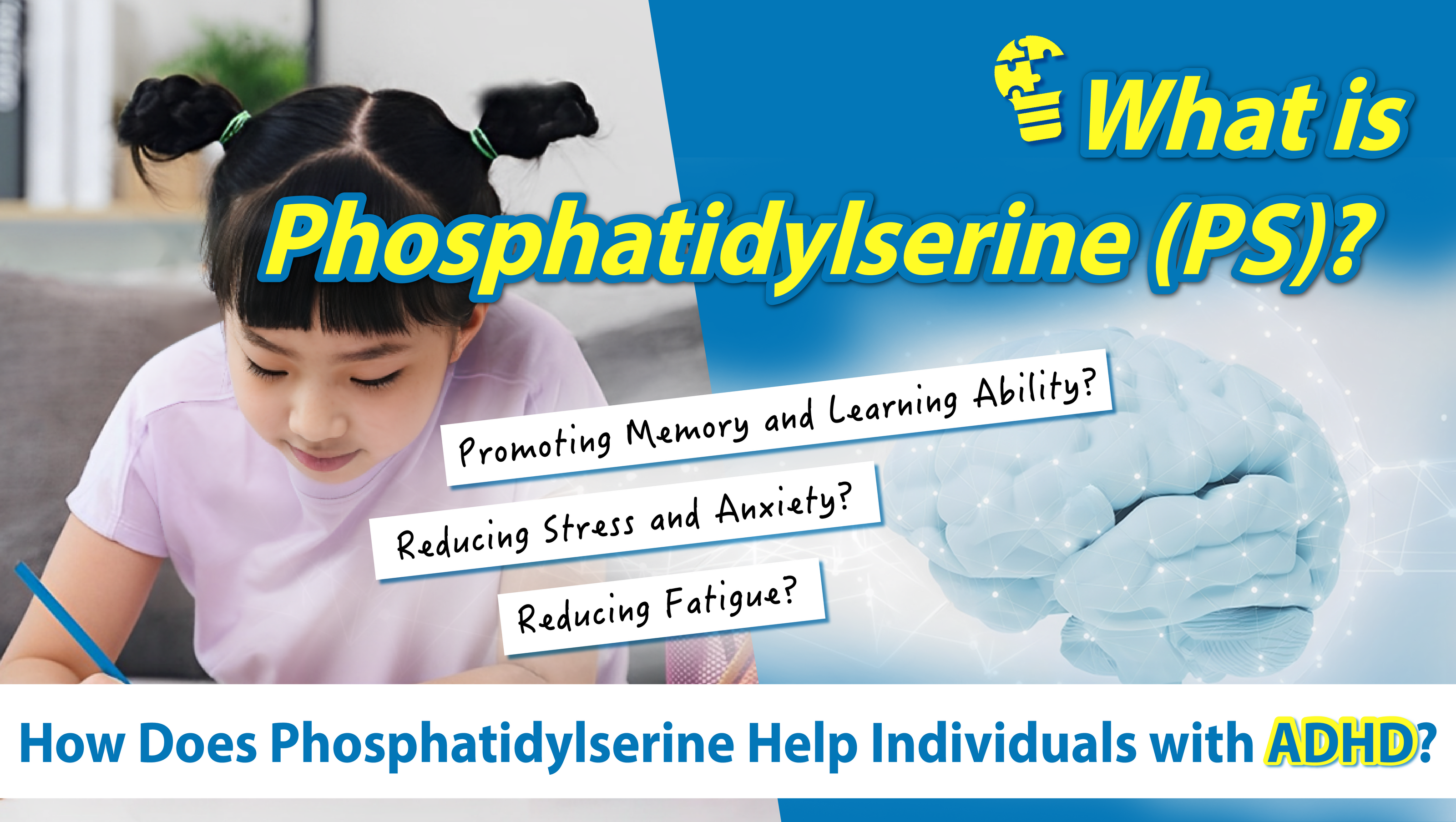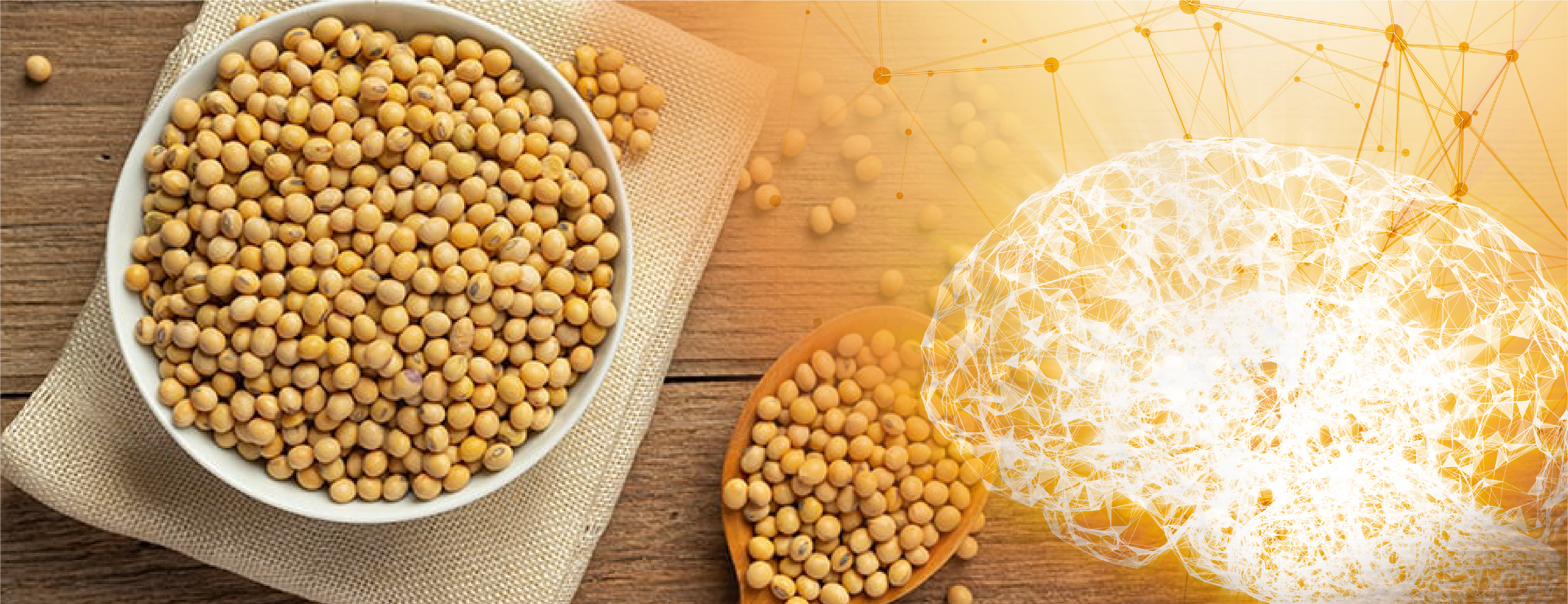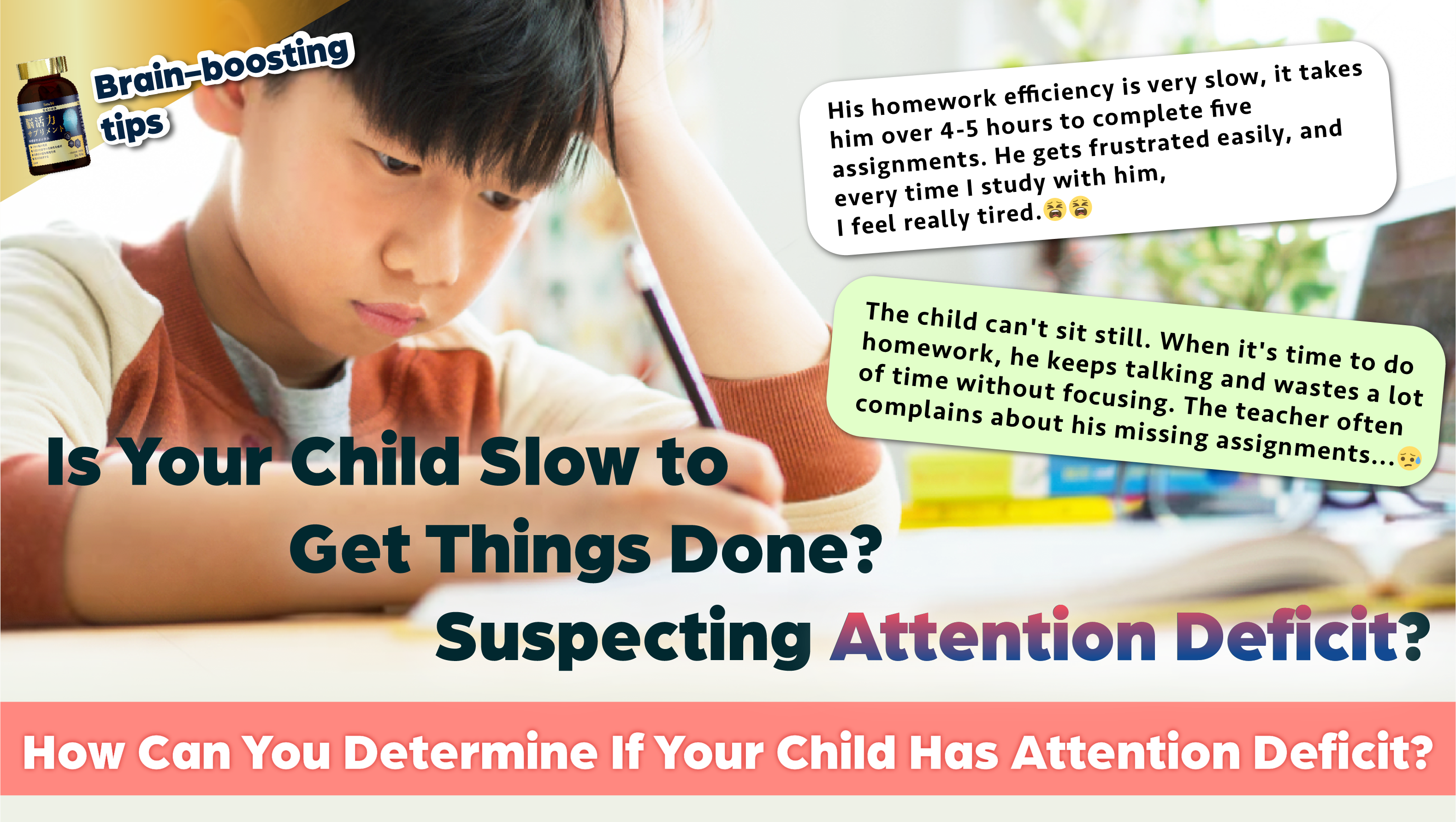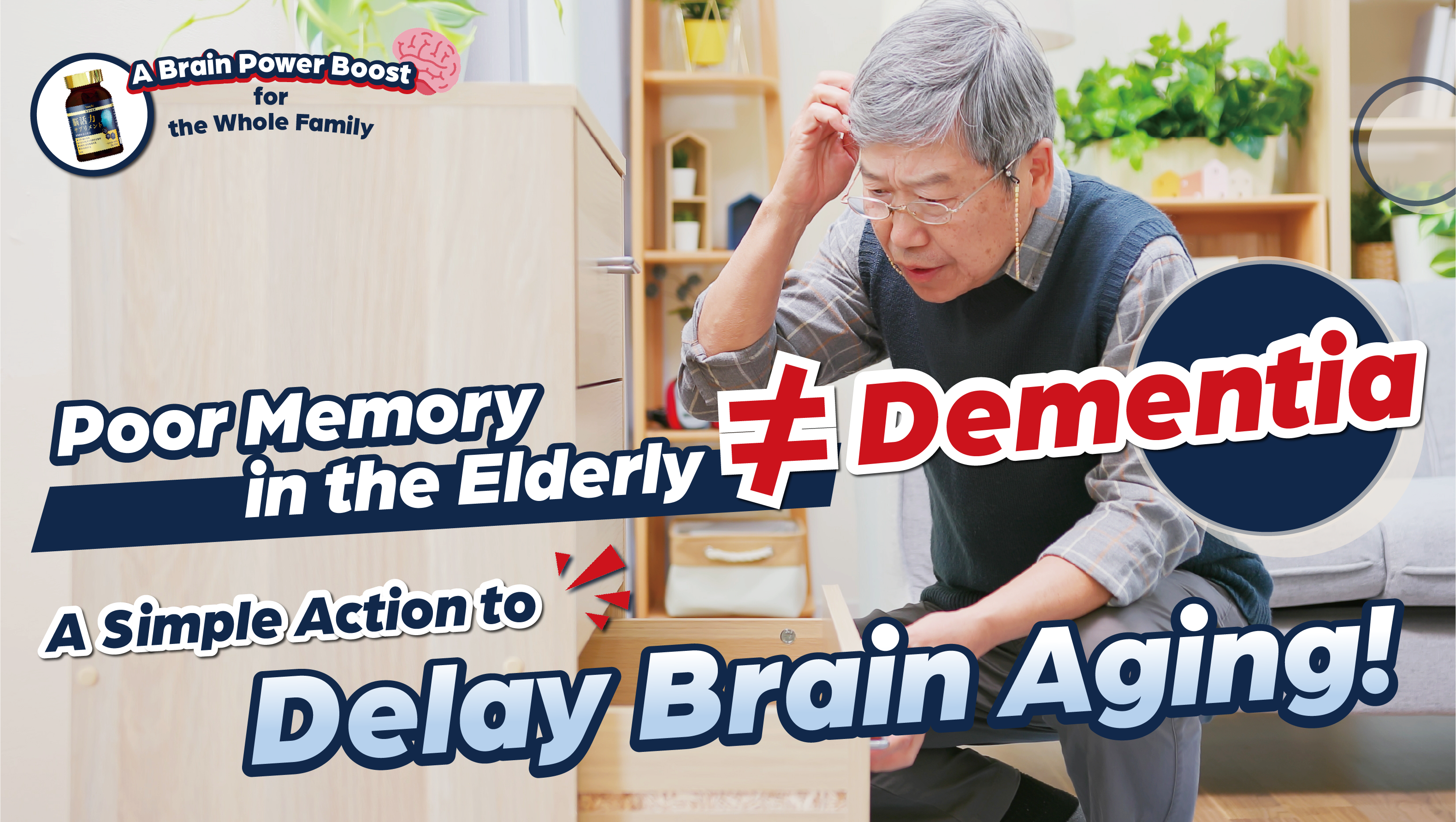Health Tips
What is Phosphatidylserine (PS)?
How Does Phosphatidylserine Help Individuals with ADHD?
19 February 2025

Phosphatidylserine (PS), also known as brain phospholipid, is a key component of cell membranes, particularly abundant in brain neurons. It plays a crucial role in maintaining membrane fluidity, facilitating signal transmission, aiding neuron repair, and promoting the release of neurotransmitters such as dopamine and acetylcholine. Phosphatidylserine has positive effects on memory, cognitive function, and stress management.
Benefits of Phosphatidylserine

- Enhances Memory and Learning Ability: Phosphatidylserine helps improve synaptic plasticity, boosting memory and learning efficiency. This makes it particularly beneficial for students and the elderly.
- Improves Cognitive Function and Prevents Dementia: Research indicates that phosphatidylserine can help slow the progression of Alzheimer’s disease and mild cognitive impairment (MCI), enhancing mental clarity.
- Reduces Stress and Anxiety: Phosphatidylserine regulates cortisol (the stress hormone) secretion, helping to lower psychological stress and alleviate anxiety.
- Boosts Athletic Performance and Reduces Fatigue: Phosphatidylserine aids athletes in maintaining focus, increasing endurance, and reducing post-exercise stress and fatigue.
- Supports ADHD Management: Phosphatidylserine enhances the function of neurotransmitters like dopamine and acetylcholine, improving focus and impulse control while reducing ADHD symptoms.
Food Sources of Phosphatidylserine
Phosphatidylserine is primarily found in animal organs and certain plant-based foods, including:
- Animal Sources: Beef brain, Chicken heart, Pork liver, Fish (e.g., herring)
- Plant Sources: Soy lecithin, Sunflower seeds, White beans, Cabbage, Walnuts

Due to reduced consumption of organ meats in modern diets, natural intake of phosphatidylserine is often low, leading some individuals to opt forsupplements.
Who Should Consider Phosphatidylserine Supplementation?
- Students and professionals: To enhance memory and focus.
- Seniors: To slow cognitive decline and prevent dementia.
- High-stress individuals: To alleviate stress and anxiety.
- Athletes: To improve performance and accelerate recovery.
- People with ADHD: To enhance attention and impulse control.
How Does Phosphatidylserine Help Individuals with ADHD?
ADHD is primarily associated with imbalances in neurotransmitters like dopamine and acetylcholine. Phosphatidylserine provides several benefits:
- Enhances dopamine function: Improves focus and behavior control in individuals with ADHD.
- Strengthens neuroplasticity: Helps the brain adapt to learning and cognitive challenges, boosting memory and information processing.
- Reduces anxiety and impulsive behavior: Regulates cortisol levels, promoting emotional stability.
- Improves sleep quality: Since some individuals with ADHD struggle with sleep due to heightened brain activity, phosphatidylserine may aid in sleep regulation.
Phosphatidylserine is an essential nutrient for brain health, suitable for individuals seeking to improve memory, focus, and stress resilience. For those with ADHD, it can help regulate neurotransmitter activity, enhancing concentration and reducing impulsivity, with fewer side effects compared to traditional medications. It is recommended to obtain phosphatidylserine through diet, with supplementation as an option if dietary intake is insufficient.
-

Is Your Child Slow to Get Things Done? Suspecting Attention Deficit?
Learn MoreDoes your child often seem restless, unable to sit still, or take a long time to finish tasks? Many parents run out of patience when helping their children study or complete homework, sometimes mistaking this behavior for mischief and scolding them. However, it may actually be a result of Attention Deficit (AD). What are the symptoms of attention deficit, and how can this issue be addressed? Let us explain!
-

Learn This Trick! Easily Adjust Your Body to Become Slimmer!
Learn More"Losing weight is so hard." This is a sentiment many people share. For some, it even becomes a lifelong mission! Many resort to extreme methods like dieting in an attempt to shed pounds. At first, it may seem effective—people can lose 2 to 3 kilograms, or even more, in a short time. However, after some time, they hit a plateau. Once they resume regular eating, their weight rebounds, sometimes with serious health consequences.
-

Say No to Steroids! Eliminate Eczema and Restore Your Baby-Smooth Skin!
Learn MorePeople with eczema often need to use topical steroids to control their condition. However, even with prolonged itching, it's important not to overuse these medications. Scratching the affected areas can lead to skin damage and expand the eczema's reach. Fortunately, many skincare brands are dedicated to researching solutions for the itching associated with eczema. A patented ingredient developed in collaboration with Kyoto University and Osaka University in Japan can quickly relieve eczema symptoms, alleviate itching, and help restore the skin barrier to address the problem at its source.
-

Poor Memory in the Elderly ≠ Dementia: A Simple Action to Delay Brain Aging!
Learn MoreAs we age, it’s common for memory to decline—forgetting names or where things are placed can cause concern about early signs of dementia. However, according to Japanese dementia specialist Dr. Yukimichi Imai, age-related memory loss and dementia are not the same, and there's no need to worry excessively about occasional forgetfulness. So, how can you differentiate between normal memory loss and dementia, and what can you do to prevent it? Let's explore!
























